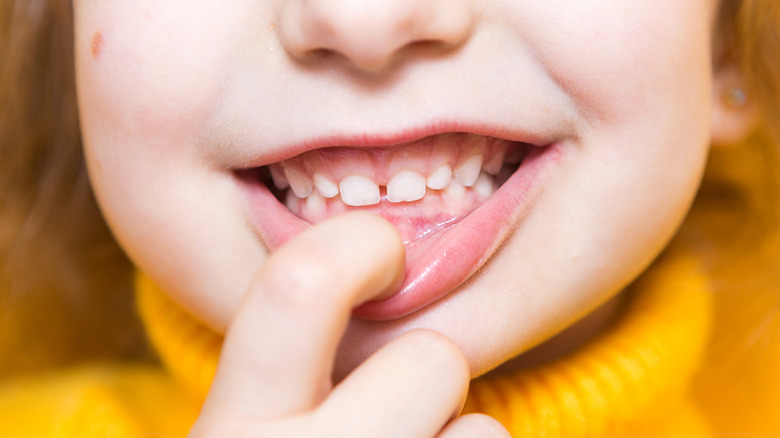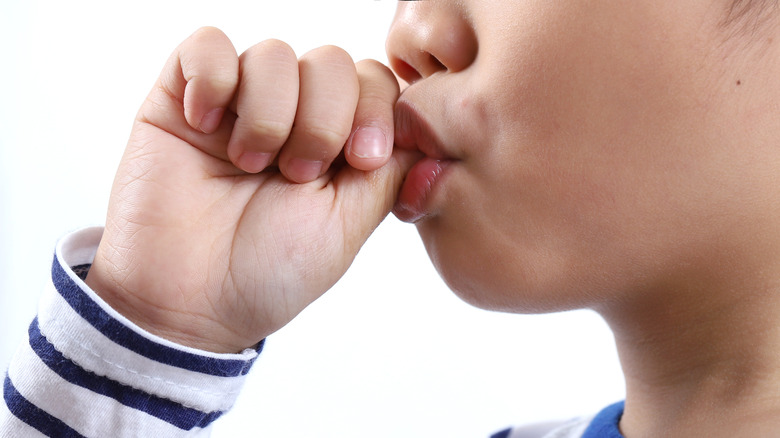This Is What Really Causes An Overbite
Everyone has a different and unique set of teeth. Some people have naturally straight teeth, while many others have what is called an overbite. An overbite is when a person's top front teeth protrude too far beyond their lower teeth. Overbites are pretty common, affecting more than 20% of the population across several countries, according to the Dental Press Journal of Orthodontics.
The U.S. National Library of Medicine notes that teeth misalignment is most often the result of genetics. It typically happens when a person's upper and lower jaws are different sizes, or if the size of a person's teeth is incompatible with the size of their jaw. A person may also experience teeth misalignment if they have missing, extra, impacted, or abnormally shaped teeth.
While you can't change your genetics, the size of your teeth or jaw, or whether you have a normal amount of teeth, there are other contributing factors that can be controlled.
These habits can lead to an overbite
Plenty of children suck their thumbs, but as your parents or guardians may have warned you, it is really not the best for your teeth. According to the U.S. National Library of Medicine, people are more likely to develop an overbite if they suck their thumbs beyond the age of 3. Other childhood habits, such as prolonged use of a bottle or using a pacifier after age 3, are also common culprits.
The Cleveland Clinic warns that teeth grinding (which is often done during sleep) and even the nervous habit of nail-biting, when done in excess, can also cause an overbite. Tongue thrusting can have the same effect, but this is less common, as it is more likely to lead to an open bite, according to Healthline. Tongue-thrusting is when the tongue is pressed too far forward in the mouth, and while it is generally a childhood habit, some people carry it into adulthood.


